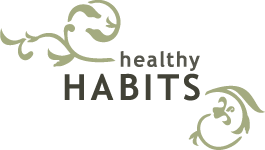We have been focusing a lot lately on inflammation in the body – which for many is chronic and responsible for a variety of different health woes.
Another chronic and often ignored health issue is dysbiosis in the gut.
Dysbiosis refers to a condition with microbial imbalances on or inside the body. For many this imbalance is in the digestive tract where the probiotics or friendly bacteria such as acidophilus and bifidus are overrun by unfriendly bacteria and yeast.
This complex ecosystem contains over 400 bacterial species. Small amounts can be found in your stomach and small intestines, but the majority is found in your colon.
Bottle feeding (instead of nursing), antibiotics, food intolerances, stress, smoking, poor dietary habits, birth control pills and corticosteroids are just some of the aggravators that start to play havoc on the gut’s microflora.
As the environment in the gut becomes more toxic the lining of the intestines become leaky and undigested food particles as well as harmful microflora can enter the bloodstream triggering an immune response and inflammation anywhere in the body. Chronic inflammation!
Symptoms of dysbiosis and a leaky gut can therefore be anywhere in the body (joint pain, headaches, skin problems). Localized symptoms of dysbiosis in the gut are flatulence, bloating, diarrhea and/or constipation, cramping and pain.
We’ve touched on some of the things you can do to treat dysbiosis in past blogs. Identifying food intolerances (and then avoiding problem foods), eating a natural whole foods diet (especially staying away from processed carbohydrates and sugar), and digestive enzymes are all helpful.
In addition taking a probiotic supplement to help reintroduce friendly bacteria is a must. A supplement is recommended since foods that contain probiotics (fermented foods like yogurt, cheese and sauerkraut) are not strong enough. Think of probiotics in food as maintenance for a healthy gut.
A probiotic supplement will not only help you re-balance your gut and reduce dysbiosis symptoms, probiotics also aid in digestion, synthesize vitamins and nutrients and enhance the immune system.
Before purchasing a probiotic talk to your nutritionist, naturopathic doctor or a reputable health food/supplement store for recommendations. There are different types, dosages, and sources of probiotics that need to be matched to your health history and needs.
Some probiotic supplements also include prebiotics, nondigestible nutrients that the friendly bacteria use as a source of energy. Food sources of prebiotics are artichokes, onion, leeks, asparagus, oats, legumes, leafy greens and garlic. A common prebiotic supplement is inulin.
